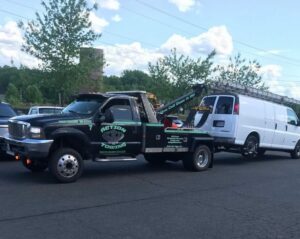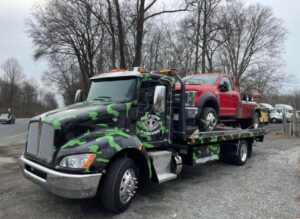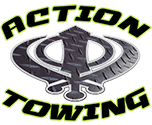 When you need to have your car towed, you want to make sure that the company you hire is licensed and insured. Our operators at Action Towing take proper licensing and insurance seriously for several reasons, and in this blog post, we’ll explore why it’s crucial for towing services to have the appropriate credentials.
When you need to have your car towed, you want to make sure that the company you hire is licensed and insured. Our operators at Action Towing take proper licensing and insurance seriously for several reasons, and in this blog post, we’ll explore why it’s crucial for towing services to have the appropriate credentials.
Licensing
Proper licensing is essential for towing services to operate legally and safely.
- A towing service that is licensed has met certain standards and regulations set by the state or local government. These standards ensure that the towing company is qualified to provide the necessary services.
- Towing companies are required to have specific licenses depending on the type of service they provide. For example, a company that provides roadside assistance may have a different license than a company that provides heavy-duty towing services. By having the proper license, you can be assured that the towing company is qualified to provide the specific services you need.
- Licensing helps protect consumers from dishonest towing companies. If a towing service is licensed, it means that they have undergone a background check and are not operating illegally. Licensing ensures that the company is accountable for their actions and can be held responsible if they violate any laws or regulations.
You can rest assured that Action Towing has all the necessary licensing to provide you with towing services. Our operators are happy to show you our certification.
Insurance
Insurance protects both the towing company and their clients in case of an accident or damage to the vehicle being towed. Action Towing has insurance coverage to protect you and our operators.
- Liability insurance is one of the most important types of insurance that a towing service should have. This insurance covers damages that the towing service may be responsible for if they cause an accident or damage the vehicle being towed. Without liability insurance, the customer may be left to pay for damages out of their own pocket.
- Worker’s compensation insurance is also important for towing services. This insurance covers any injuries that a towing service employee may sustain while on the job.
- Having the proper insurance also provides peace of mind for the customer. If something goes wrong during the towing process, the customer can be assured that they will be protected and that any damages will be covered.
Why it Matters
Hiring a towing service that’s not licensed or insured can lead to several problems, including legal issues and financial liabilities. It’s also dangerous – they may not have the necessary equipment or experience to provide the services you need.
By hiring a licensed and insured towing service, you can be assured that the company has met certain standards and regulations, and that they have the appropriate insurance to protect both themselves and their customers. Licensing and insurance also provide accountability, as the company can be held responsible if they violate any laws or regulations or cause damage to your vehicle.
Conclusion
Proper licensing and insurance are crucial for towing services. These credentials ensure that the towing company is qualified to provide the necessary services and has the appropriate equipment to do so. Licensing and insurance also protect both the towing company and their clients in case of an accident or damage to the vehicle being towed. When hiring a towing service, make sure to choose a company that is licensed and insured to ensure a safe and stress-free experience.

Thank you for pointing out that in the event of an accident or damage to the vehicle being towed, insurance covers both the towing firm and its customers. It is crucial to make sure that the towing company you hire has one in case of unanticipated events because of this. I’ll be sure to let my loved ones know about this so they know what to do if they ever need a towing service.